detail profile jacqueline du pr c3 a9
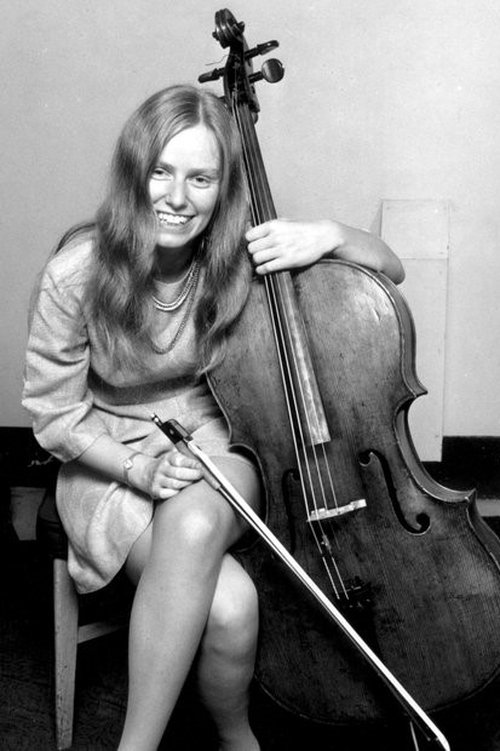
Riwayat Hidup
Jacqueline du Pré, was born into a middle-class English family in Oxford on 26 January 1945.
Hers was a musical household, and at the age of four the young Jackie was famously struck by the sound of a cello playing on the radio.
She told her mother, ‘I want to make that sound'.
Cello and piano lessons followed with her mother Iris, a concert pianist and, by all accounts, an inspirational teacher who turned her children’s music lessons into a journey of play and discovery.
She moved on to lessons with the celebrated cellist William Pleeth (whom she nicknamed her ‘cello-daddy’) at the age of 10.
At the age of 17 she astonished audiences and critics with her fiery performance of Elgar’s Cello Concerto, a work that has remained synonymous with her name ever since.
Du Pré embarked on a glittering international career, performing and recording with fellow young musical stars such as Itzhak Perlman, Pinchas Zukerman, Zubin Mehta and Daniel Barenboim, whom she married in 1967.
But just six years later in 1973 the increasing ill health she had begun to experience was diagnosed as multiple sclerosis.
She was just 28 when her playing career came to an end, but she continued, while she was able, to teach and give masterclasses.
She died in October 1987 at the age of 42.
Info Pribadi
Peran Yang Di Mainkan Jacqueline du Pré
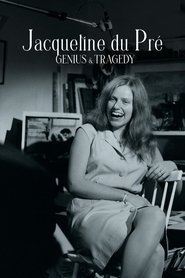 YoYo Ma narrates a documentary about...
YoYo Ma narrates a documentary about...Jacqueline du Pré: Genius and Tragedy 2025
Yo-Yo Ma narrates a documentary about the remarkable cellist Jacqueline du Pré, whose life and career were cut short by multiple sclerosis.
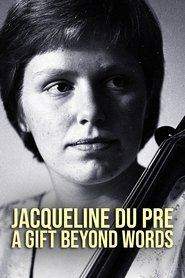 A tribute to Jacqueline du Pr...
A tribute to Jacqueline du Pr...Jacqueline du Pré: A Gift Beyond Words 2017
A tribute to Jacqueline du Pré to mark the thirtieth anniversary of her death thirty years ago, on 19 October 1987. The film contains archive footage shot during Jacqueline du Pré’s lifetime which captures some glorious and professionally filmed live performances. It also remembers both her personality and her music through the memories and tributes of her closest friends and colleagues.
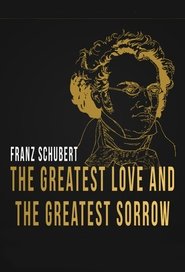 The Greatest Love and the Greatest...
The Greatest Love and the Greatest...The Greatest Love and the Greatest Sorrow 1994
The Greatest Love and the Greatest Sorrow is a film which sets out to bring the viewer closer, not to the details of Schubert's life, but to the spirit of what he was trying to express with what he called his creative gift and with which he tried "to brighten the world". The film begins with the funeral of Beethoven, at which Schubert was a torch-bearer, His story is told almost entirely in music written in the twenty months that remained to him after that date, together with quotations from Schubert's letters, diaries and the words that he chose to set in some of his songs. Includes personal introductions by Christopher Nupen and Jacqueline du Pré and features the legendary 1969 performance of The Trout with Daniel Barenboim, Itzhak Perlman, Jacqueline du Pré, Pinchas Zukerman and Zubin Mehta.
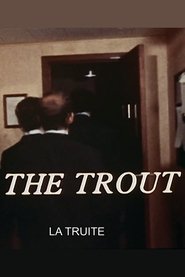 Christopher Nupens record of the concert...
Christopher Nupens record of the concert...The Trout 1970
Christopher Nupen's record of the concert given by five young musicians in the new Queen Elizabeth Hall at London's South Bank, in 1969. The Trout is an exuberant explosion of youthful enjoyment in music: first from Schubert himself, who wrote his famous Trout quintet when he was 22 years old, and then from five young artists of the highest rank. They pick up the spirit of Schubert's music magnificently, both in preparation and rehearsal, and in their 1969 performance of the work, which has become one of the most remembered ever given. Includes personal introductions by Christopher Nupen and Jacqueline du Pré and features the legendary 1969 performance of The Trout with Daniel Barenboim, Itzhak Perlman, Jacqueline du Pré, Pinchas Zukerman and Zubin Mehta.
